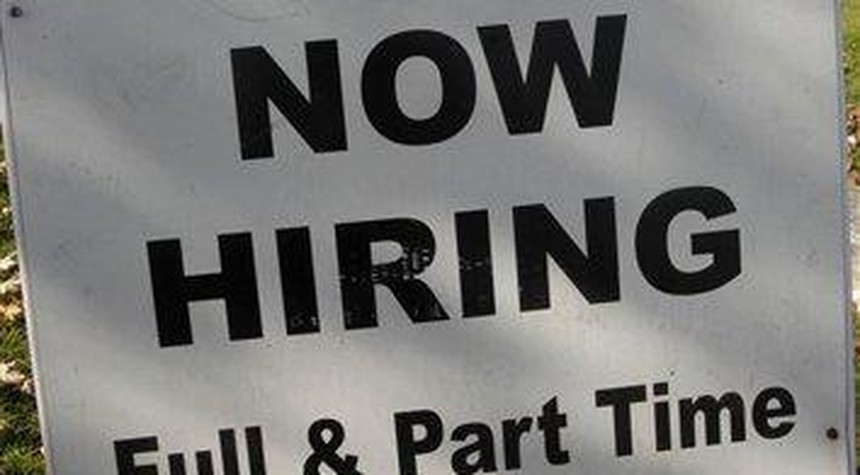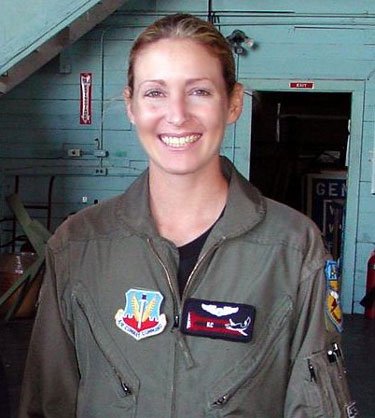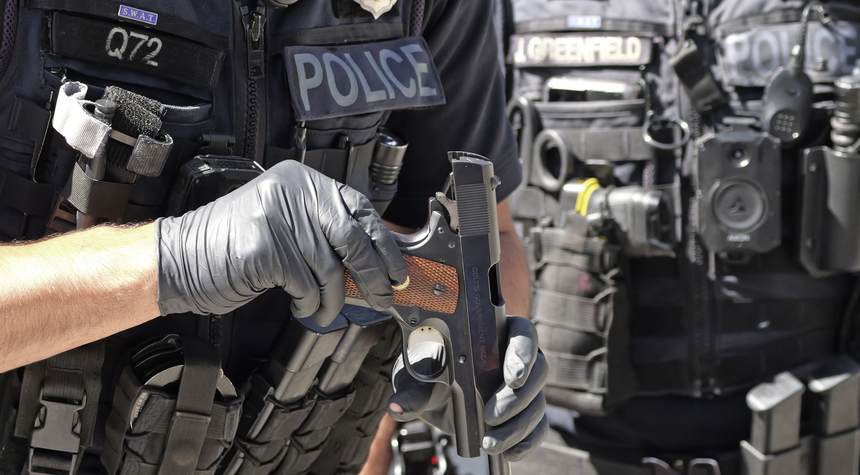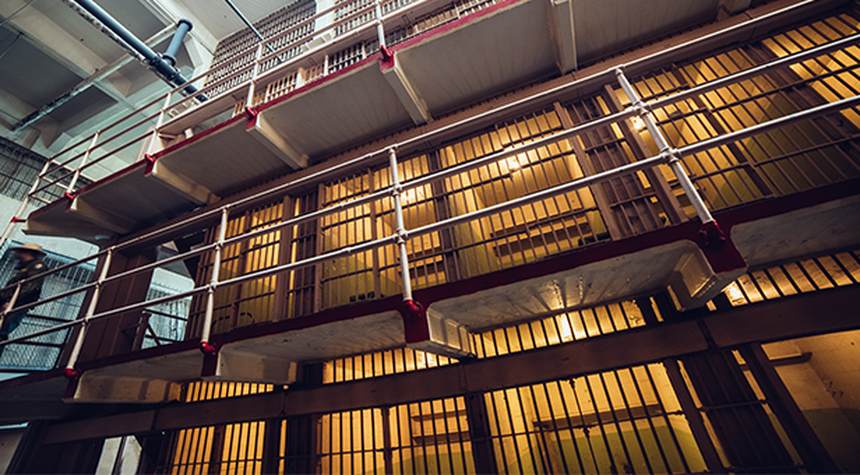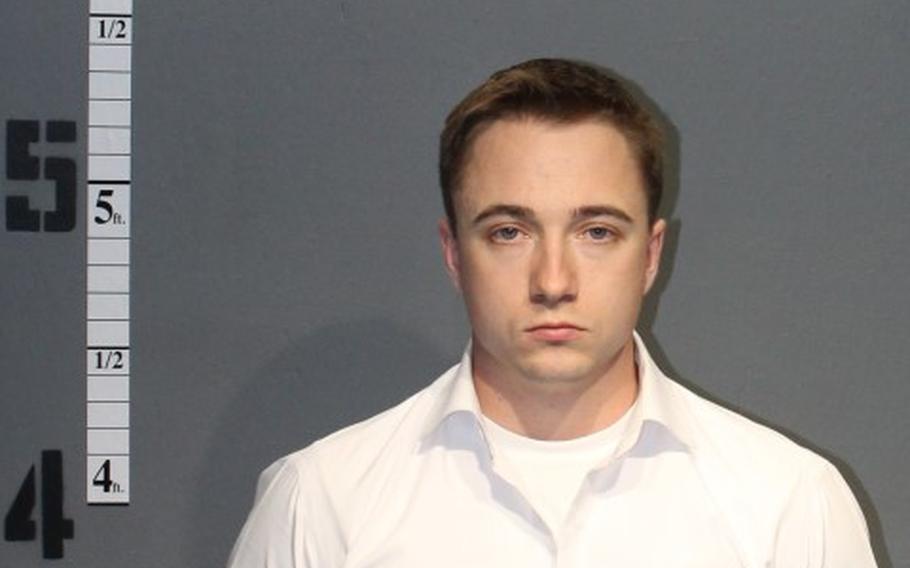World War I turned our planet into a slaughterhouse, with more than 8 million battlefield deaths and 22 million troops wounded. Machine guns, newly deployed in great numbers in combat, were responsible for much of the killing.
Some historians see machine guns as responsible for up to 40 percent of the Great War’s battlefield deaths. A more conservative consensus places the machine gun death rate at about 20-25 percent. Artillery fire is known to have been the greatest killer on World War I battlefields. Men clustered in groups in whatever cover they could find in the trenches and muddy holes of “No-Man’s Land,” and the bunched-up units offered artillerists of both sides a perfect target. But why were they crammed into trench lines that ranged from the Channel coast all the way to Switzerland? To escape the murderous fire of machine guns, of course.
Well emplaced machine guns dominated the battlefield. On July 1, 1916 alone, during the first day of the Battle of the Somme, a large portion of the more than 19,000 British deaths (and 30,000+ wounded) were the result of machine-gun fire. The hammering of entrenched German machine guns reduced the British attack to a bloody disaster. Tactics from the 19th century were no longer an option against 20th Century arms. Individual machine gunners killed many hundreds of men advancing before their guns. Some gunners collapsed, mentally and emotionally, after hours of unrelenting slaughter, realizing they had become the grim reaper personified.
On the receiving end, the infantryman of the era knew that a call to charge “over the top” was an invitation to near-certain death. The dominance of the machine gun eliminated the horse cavalry, and brought forth the need for armored vehicles and the use of aircraft for reconnaissance.
Arms and tactics evolved quickly during the Great War, most of them devised in an effort to break the stalemate on the Western Front and overcome the dominance of the entrenched machine gun. By the last Allied offensive of 1918, the new concepts of firepower and movement, bolstered by lighter, more transportable automatic arms and enabled by assault teams working in concert with more reliable tanks, broke through the Hindenburg Line and brought about the Armistice.
World War I was over, but World War II waited like a specter just out of sight. The machine guns, the Grim Reapers of the battlefield, would not have long to wait before they returned to their deadly work.
Here’s a look at the primary machine guns used during World War I:
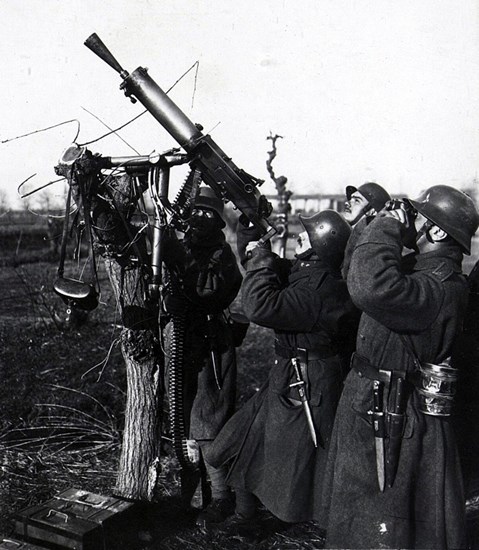
Austro-Hungarian Schwarzlose Model 1907-12, complete with tripod set up for AA work. A reliable machine gun used in many roles, the Schwarzlose had a low cyclic rate at 400 r.p.m., which was increased during the war to 580. The Model 1907-12 uses an internal oiling system to lubricate cartridges for extraction. The gun was chambered in 8×50 mm R Mannlicher cartridge.
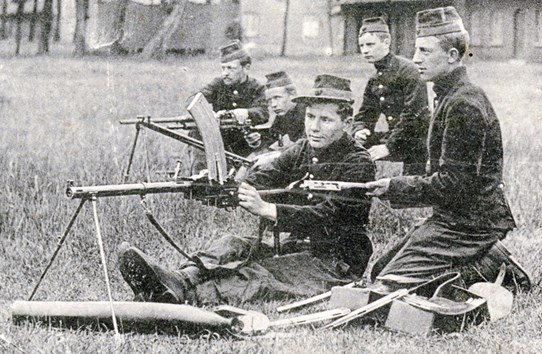
Belgian troops with a Danish-designed and built Madsen light machine gun. Before the start of World War I, many countries had purchased and tested the highly-reliable but also very expensive Madsen LMG. During the war, many combatants used the Madsen, with the Russians (in 7.62×54 mm R) and the Germans (in 7.92×57 mm Mauser) fielding the most. In the east, the Madsen was sometimes used as an aircraft observer’s gun as well.
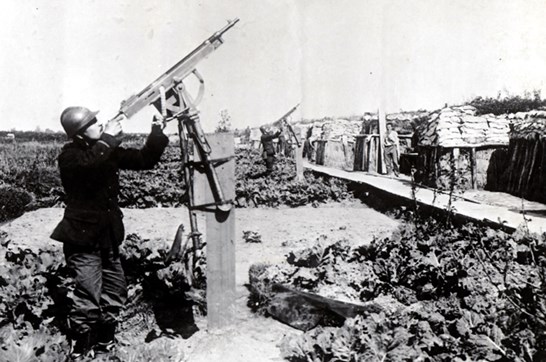
Belgian troops with the Colt-Browning Model 1895 machine gun. The “potato digger” was the first successful gas-operated machine gun in service. The Model 1895 found its way into many arsenals during the Great War, ranging from lesser users like Canada and Italy, to the Russian Empire, which purchased nearly 15,000 of the Model 1895/1914 guns.
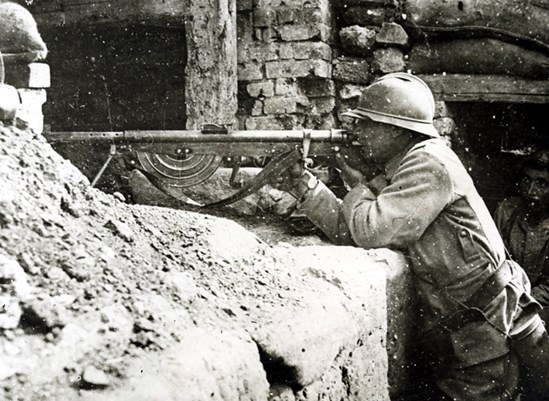
The French FM Chauchat, or Fusil Mitrailleur Modele 1915 CSRG. One of the most reviled small arms of all time, nonetheless the Chauchat was an extremely important automatic rifle in the Allied arsenal, and ended up being the most-produced automatic gun of the war (262,000). Chambered in 8 mm Lebel, the Chauchat used a clumsy long-recoil, gas-assisted system, and its flimsy 20-round magazine was a constant source of headaches. Used extensively by the French, Belgians and Russians, the Chauchat was also the primary light machine gun of the American Expeditionary Force.
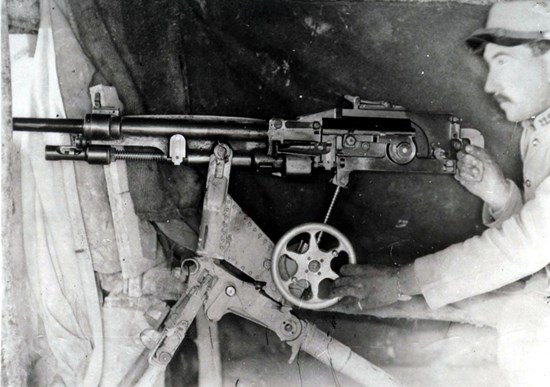
The French St. Étienne Mle 1907 machine gun, chambered in 8 mm Lebel. The St. Etienne was a mechanically complex design, and not well suited for the rigors of the battlefield. Beginning in July 1917, the Mle 1907 was withdrawn from the front line including service and assigned to other duties, including anti-aircraft work. Some were passed to the Italian Army, while the Romanians purchased some Mle 1907 in 1914 and 1916. Cyclic rate was approximately 650 rounds per minute.
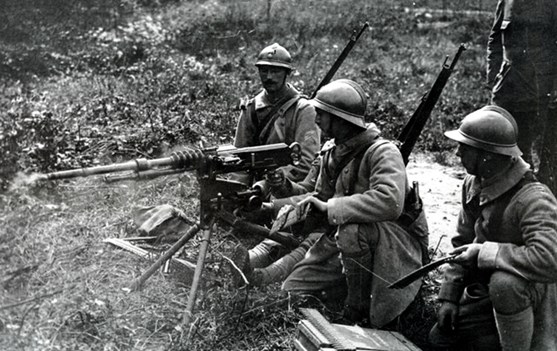
The French Hotchkiss Mle 1914, chambered in 8 mm Lebel. The Hotchkiss was very strong and reliable, and beginning in 1917 it became the standard French heavy machine gun. It was fed by 30-round ammunition feed strips (and later by an articulated metal feed belt) to achieve a cyclic rate of up to 600 rounds per minute. The American Expeditionary Force made the M1914 Hotchkiss its standard machine gun and acquired more than 7,000 for use in 1917-18. The Hotchkiss remained in French service through World War II and was sold in large numbers around the world.
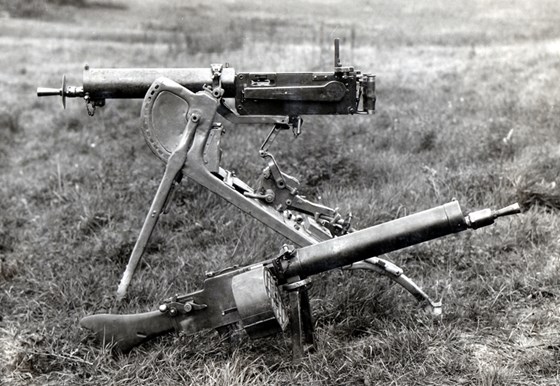
The German MG08 (background) and MG08-15 (foreground). Germany’s World War I machine guns were modifications of Hiram Maxim’s original gun design. The MG08, chambered in 8×57 mm, was normally mounted on a heavy sledge mount, called the “Schlittenlafette,“ which allowed for accurate shooting up to 2,000 yards. The MG08 was heavy (152 lbs. with the water-jacket filled) but fantastically reliable, and its firepower cut down wide swaths of Allied troops in the war’s early years. Ammunition feed was by 250-round belt, with a cyclic rate of 600 rounds per minute. Air-cooled aviation variants were produced as the IMG 08.
As tactics evolved, the German Army sought a lighter machine gun that could keep pace with fast-moving assault troops. This concept led to the MG08/15, essentially a lightened MG08 that featured a wooden buttstock and pistol grip, and used a small bipod. Weighing in at a little more than 39 lbs., the MG08/15 became Germany’s most produced machine gun of World War I. Ammunition feed and cyclic rate were as with the original MG08.
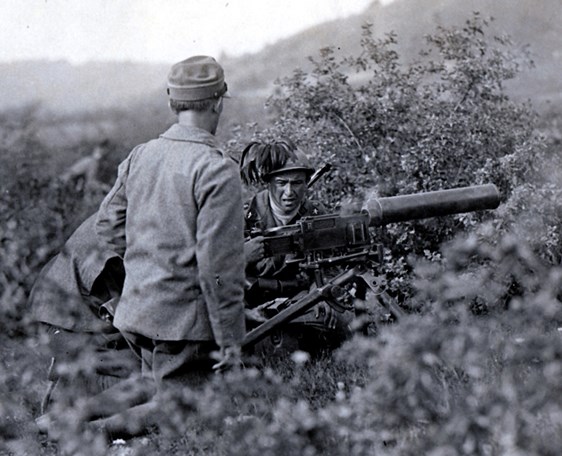
The Italian Fiat-Revelli Modello 1914, chambered in 6.5×52 mm Mannlicher–Carcano. Italy’s standard machine gun in World War I, the Modello 1914’s feed mechanism was unusual, using a 50-round magazine divided into 10 compartments, each loaded with a standard rifle charger. The system was slow to load, and also prone to malfunctions. Cyclic rate was rather low, normally below 500 r.p.m.
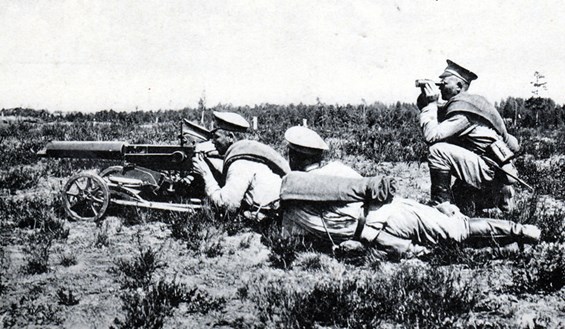
The Russian Maxim PM M1910, Imperial Russia’s primary machine gun, chambered in 7.62×54 mm R. Directly derived from Hiram Maxim’s original machine gun. The Russian Maxim is frequently seen on the low-profile, wheeled, Sokolov mount—with or without a protective shield for the crew. Ammunition feed was by a 250-round belt, and the cyclic rate was 600 r.p.m. The Russian Maxim was an excellent weapon, highly effective and supremely reliable. The PM M1910 was the dominant machine gun found throughout much of Eastern Europe during the turbulent post-WWI period, and served on throughout World War II.
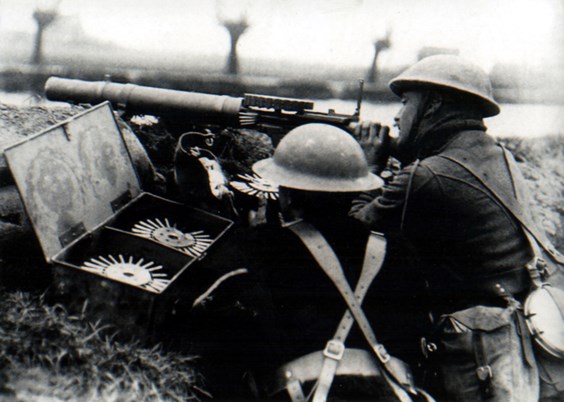
The Lewis Gun was invented, and more importantly, marketed by American Col. Isaac Newton Lewis during 1911. Lewis was unable to interest the U.S. Army in his gun, so he first moved to Belgium, and then settled in England. The Lewis Gun went on to become standard issue for British troops (chambered in .303 British), and proved to be one of the most effective infantry weapons of the war. Lewis Guns were well used by the infantry, were mounted in British tanks, and were also a premiere aircraft gun (particularly for observers). The U.S. Marine Corps arrived in France with Lewis Guns, but were not allowed to keep them, and the Leathernecks saw them replaced with the Chauchat. The Lewis stayed in service, and saw considerable action with British and U.S. forces in the early part of World War II.
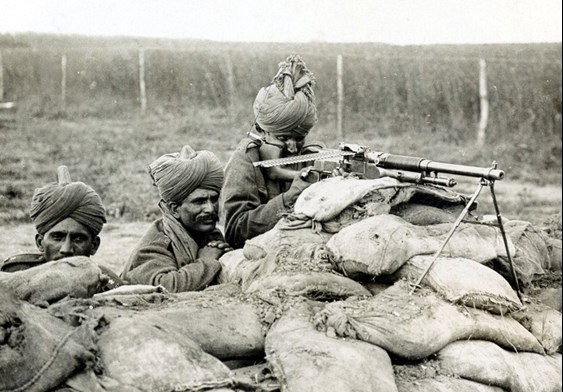
Indian troops with a Hotchkiss Portative machine gun. Also known as the Hotchkiss Mark I and M1909 Benét–Mercié, the Hotchkiss Portative (chambered in .303 British) was fed by a 30-round feed strip. A lesser-known, but important World War I machine gun, the little Hotchkiss was a useful gun, used by British and Commonwealth troops, the French, and also saw some wartime service with the AEF. Cyclic rate ranged from 400 to 600 r.pm.
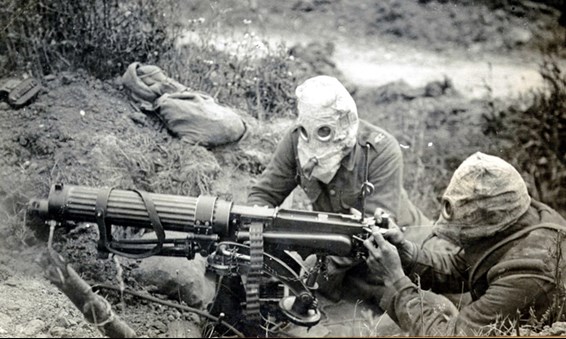
The British Vickers machine gun, chambered in .303 British. The Vickers was the primary British heavy machine gun of both World Wars, and has been described as “foolproof in its reliability”. Much loved by British troops, the Vickers was an improvement of the original Maxim gun (Vickers purchased Maxim in 1896). In 1912, the Vickers MG was officially adopted by the British Army. It was not phased out of service until 1968. During World War I, the Vickers proved to be one of the dominant battlefield arms, on the ground and in the air. Cyclic rate was 500 r.p.m.
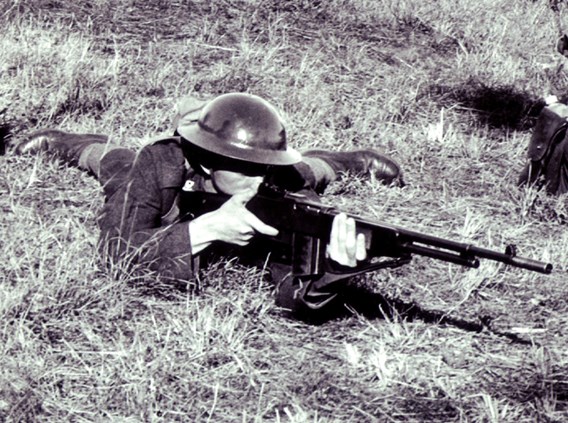
The U.S. Browning Automatic Rifle (BAR) chambered in .30-’06 Sprg. John Moses Browning’s genius automatic rifle design did not see action until late in World War I. Regardless, the BAR made a huge impression on friend and foe alike. Exceptionally well balanced and supremely accurate, the M1918 BAR hammered out its .30-cal. rounds at 650 per minute. The BAR has often been misunderstood, and thus misapplied, as a “light machine gun.” Attempts to make it so were unsuccessful, and by the end of World War II, the BAR returned to its original 1918 form as the world’s preeminent automatic rifle.
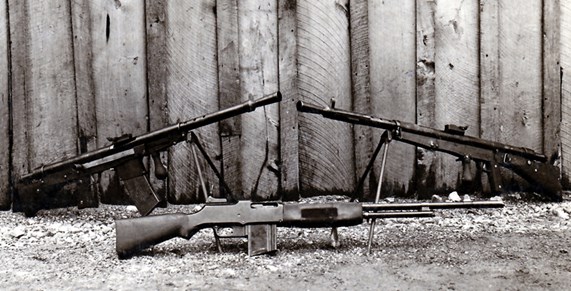
The M1918 BAR, flanked by the AEF’s Chauchat machine rifles. On the left is the failed attempt to convert the Chauchat to fire the US .30-‘06 round. Shoddy design and manufacture rendered the M1918 Chauchat defective and unfit for service.
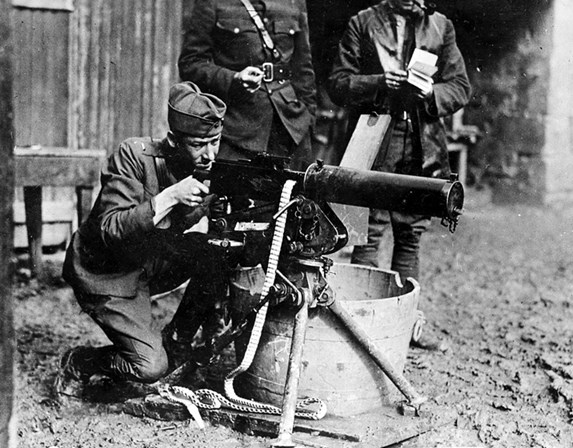
The Browning .30-cal. M1917 machine gun. America’s newly designed heavy machine gun did not see service until the last few months of the Great War, but it quickly earned a reputation for reliability and accuracy that made it one of the great machine guns of the conflict. Cyclic rate was 500 r.p.m. The M1917 remained in U.S. service until the late 1950s.
